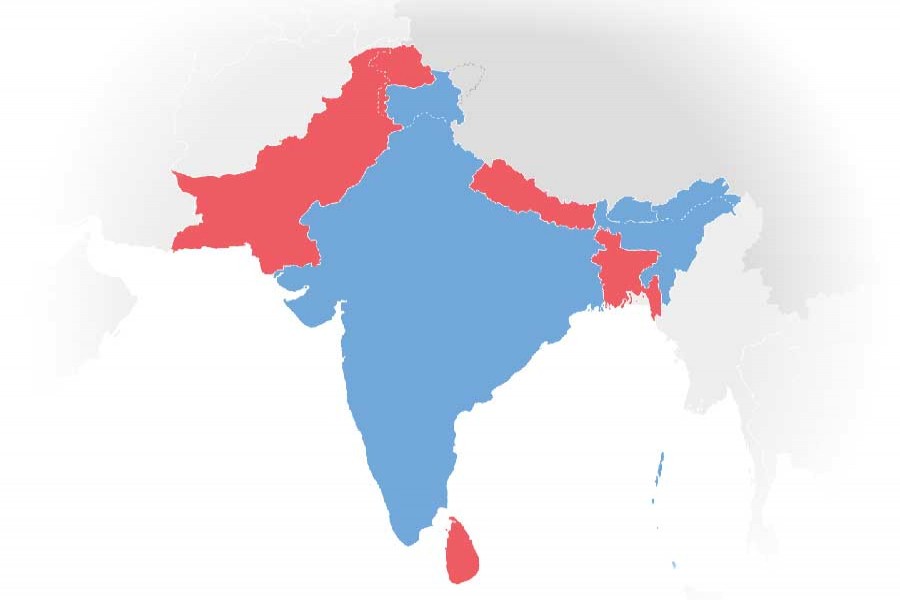A two-day roundtable on "Regional collaboration: transforming economies", organised by World Islamic Economic Forum (WIEF) Foundation and South East Asian Co-operation (SEACO) Foundation, was held recently in Dhaka. It emphasized that cooperation between South and Southeast Asian Muslim nations will immensely benefit the region, including non-Muslim nations. Such cooperation will increase business and regional connectivity. Regional cooperation, connecting national economies, could help develop communities socially and economically through trade, investment and tourism. The Roundtable noted that Islamic finance was a burgeoning sector with assets estimated to grow to $3.8 trillion by 2023 from $2.4 trillion in 2017. It noted that the halal food industry in Muslim countries holds huge potential, and non-Muslim countries can also take advantage of this market.
Bangladesh's strategic location gives the country trade advantages in the South and Southeast Asian regions. With the creation of enabling environment (by SEACO) for cooperation in intra-trade investment and infrastructure among five disjointed OIC economies in South and South East Asia (Bangladesh, Brunei, Malaysia, Indonesia and Maldives), with a GDP worth $300 billion, Bangladesh's economy would gradually turn stronger with rising purchasing power. Indonesia and Malaysia can take advantage of this by increasing investment as domestic consumption in Bangladesh is increasing, the SEACO Executive Chairman noted in the Roundtable.
The Chairman of WIEF Education Trust said regional cooperation was increasing connectivity among member countries which would help boost business and national economic development. He further suggested that member states of the WIFE, SEACO and the Organisation of Islamic Cooperation (OIC) of the region should work in their common interest in a way the European Union does, which would strengthen regional cooperation. He called for taking up practical programmes for implementation under regional cooperation to develop the private sector. The OIC members need to take initiatives to enhance regional trade, investment and overall cooperation in South and Southeast Asia. Chairman of SEACO, who is also a former OIC Assistant Secretary General, said that SEACO Foundation was basically a private sector platform giving emphasis on regional cooperation and investment for economic development.
An effective way to enhance regional cooperation in the region could be the creation of a regional fund or regional bank to finance aid project and crisis prevention as well as provide finance to the private sector. South Asia could take lessons from the experience of ASEAN (Association of Southeast Asian Nations) states trying to attract intra-regional investments with the help of ASEAN Investment Area (AIA). Mobilising foreign exchange reserves for development projects and crisis prevention could play an important role.. Regional institutions are not only outcome of negotiation processes but also drivers of negotiation processes.
Good examples of regional bodies are European Commission (EC) and European Central Bank (ECB) in the European Union (EU), Chiang Mai Initiative Multilateralisation (CMIM) in East Asian region and ASEAN+3 Macro-economic Research Office (AMRO) and very recently, the Bangladesh-China-India-Myanmar Forum for Regional Cooperation (BCIM-EC).
A possible means to increase financial cooperation could be the building and implementing mechanisms like Asian Clearing Union (ACU). However, ACU did not provide enough incentives because of limited coverage of products and limited scope of agreements. The Kunming Initiative, which is currently known as "BCIM (Bangladesh-China-India-Myanmar) Economic Connectivity Forum for Regional Cooperation" began its journey in August 1999 in Kunming, capital of China's southwestern province of Yunnan province. After 14 years of intense dialogue and cooperation, today BCIM Forum has become an important sub-regional cooperation mechanism in the region, aimed at greater integration of trade and investment between the four countries. Subsequently, to facilitate and consolidate the process of regional economic cooperation and create cross-border trade and investment opportunities both at public and private sector level, an organisation named "China Kunming International Logistics & Finance Association (ILFA)" has been set up in Kunming with the support of the Chinese government. The Forum reached the consensus about establishing non-governmental financing mechanism for China-South Asia International Finance Opening and Cooperation. Decisions of all meeting of the Forum shall be submitted to quarterly meetings of BCIM governmental working group, China-Bangladesh governmental working groups, Greater Mekong Sub-region (GMS) leadership summit and other bilateral and multilateral economic forums participated by China. The forum will work together on promoting BICM Economic Corridor building, China-Bangladesh Economic Corridor building and China-South Asia International Finance Opening and Co-operation.
Cooperation could be more successful if there was greater scope for market-driven integration. In South Asian region transaction cost are high due to high share of raw material, high transportation costs, weak infrastructure and fragile financial service. Non-tariff barriers, such as inefficient border procedures, excessive documentations, burdensome custom procedures, inefficient port operations add significantly to the transaction costs of intra-regional trade.
The South Asian economies should play a greater role in the regional cooperation process. They should avoid periodic provocations such as terrorist attacks or random economic shocks. Member states should grant unilateral concessions. They should create a functional platform making comparable connections of interdependence.
Dr Muhammad Abdul Mazid, Adviser, South East Asian Cooperation (SEACO ) Foundation, is a former Chairman of the South Asian Federation of Exchanges (SAFE).


